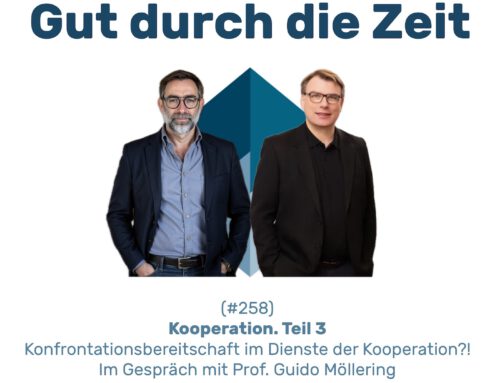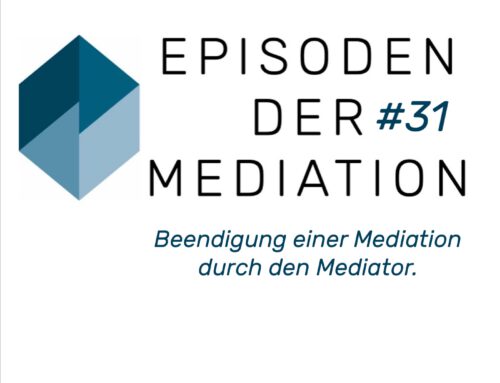INKOVEMA Podcast „Well through time“
#149 Comedy in conflicts
Basic attitudes of comedy and its effect in conflict. In conversation with Prof Dr Guido Möllering
Well through time. The podcast about mediation, conflict coaching and organisational consulting.
Prof Dr Guido MölleringEconomist, professor at the University of Witten-Herdecke, heads the Reinhard Mohn Institute for Corporate Management. His work focuses on trust, co-operation and leadership.
Contents:
Conflicts and comedy are culturally shaped in organisations. As organisations do not consist of a single culture, but of an interplay of several subcultures, not only do conflicting points of view clash, but also different ideas and basic attitudes towards comedy. This by no means only harbours dangers for escalating conflict situations, but also opens up opportunities for comedy.
Basic attitudes of comedy
(based on Zeichhardt, R.: Comedy and conflict in organisations 2009)
- CynicismGeneralised devaluation of generally accepted values („A dictatorship doesn't sound so bad when you think about who has a say in a democracy).
- SarcasmBiting, malicious mockery based on hostility (An employee is sitting in the break room resting. Her boss spots her and shouts: „Don't overwork yourself“)
- Irony: Double-layered, negative-critical, witty statement (After an obvious mishap, a co-worker comments: „Great job, you're doing great!“)
- Self-ironySelf-criticism, complemented by hilarity (Due to an inappropriate choice of clothes, an employee says: „I look like I got dressed in the dark this morning. “)
- Friendly humour: Unexplained, cheerfully serious remark („Please write me off sick, doctor& “ „What are you missing?““A few days off“).
Literature
- Kowalski, Melissa/Möllering, Guido: Comedy in conflicts. How jokes between subcultures can have a de-escalating effect, in: OrganisationsEntwicklung, No. 1/ 2022, pp. 78-82.
- Zeichhardt, R.: Comedy and Conflict in Organisations, Gabler Verlag, 2009





Leave A Comment